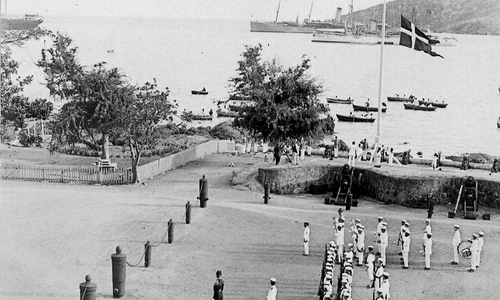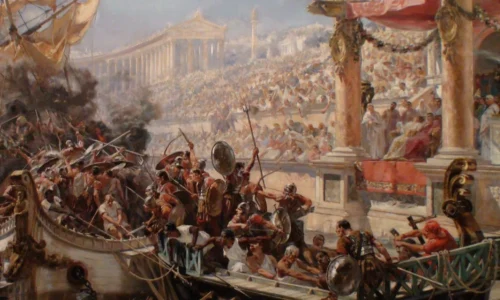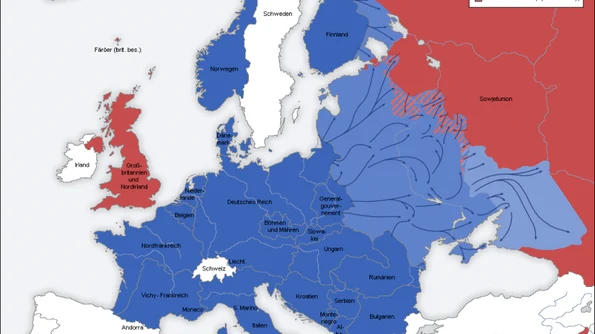
What brought about the Second World War?
You have probably read many articles, books and what not on the origins of the WW2 and I will not try to be exhaustive or claim I hold the absolute truth. I won’t even claim I am right. As with everything in History or International Relations, the truth is somewhere in the middle and there is no ultimate or final version of a story, because, in the end, what we all write is somewhat subjective, a reflection of our thoughts, no matter how many documents or books we read and analysed.
I think that people and maybe even historians have looked too far in time to determine what actually caused the world to slip into the war again in 25 year-time since 1914 and not to closely on the conditions of 1939. For instance, in his 2006„The Wages of Destruction. The Making and Breaking of the Nazi Economy”, Adam Tooze destroyed the myth of the German economic prowess and drive. In reality, since 1933, the British Royal Navy was steadily rearming at a rate of 30% higher than the Kriegsmarine, whereas in 1938, the United States benefitted from the biggest Naval Bill in the American history and also, in the world at the time:a law which enabled 1, 15 billion dollars to build the ships Washington may need in a future conflict.

Also, in 1938 – 1939, the Third Reich was confronted with yet another economic crisis which brought the rearming process almost to a halt. Throughout the 1930s, Berlin would confront itself with times when it had to effectively decide between the domestic market and its citizens or to continue with the military build-up. Inspired by the extreme ideology of Nazism which professed an inevitable war and the “rebirth of Germany”, Hitler always decisively intervened in the favour of the rearming process. Thus, in 1938, the supreme leader thought it yet again wise to keep on with the build-up, even against some mild opinions against it.
Therefore, 1939 was the decisive year:Hitler had to either stop the German rearmament altogether and to give way to a kind of normal economy which would take into consideration the citizens’ needs. Yet, this was not possible, because of the ideological conditioning:rearmament was indissolubly connected to Germany’s great power status and its future as the European hegemon. To Hitler’s way of thinking and because of the precepts of the Nazi ideology, war would cleanse all that was “bad” inside and outside the Reich and it would also be the last step towards the German Weltmacht. War would ensure Germany’s Weltmacht quality of otherness, because that was what the second most important part of the Reich’s journey on which Hitler and the Nazi elite embarked it on:besides power, it had to become a Great Power of another substance than its ultimate model – the United States.
At least in Europe, Germany was the only state whose political elite was gearing it towards war. Hitler knew in the back of his mind that, probably ever since 1937, that a war would surely break out, that he and his regime would create a crisis at some point which would end in war. This was the Polish Crisis. Whereas the English were desperately trying to convince Berlin to negotiate, the Nazis made up their mind that they would not let yet another crisis to be solved through an International Conference. Although Hitler realized at the Munich Conference that it might have been the best outcome, he still claimed afterwards that the West robbed him of a swift victory against the Czechs.
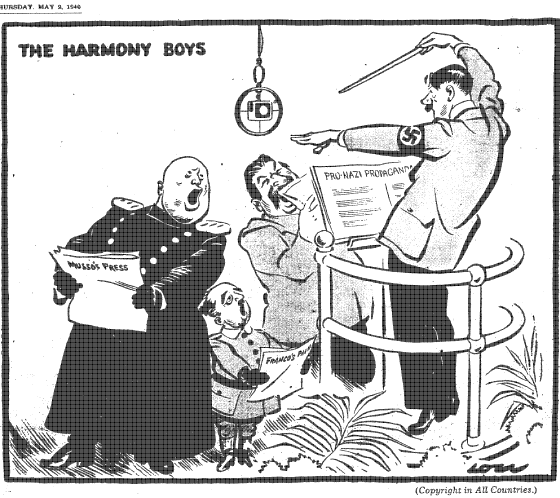
This way, in August 1939, he worked himself into a rage and would not let anybody tell him he had to change his long term plans of fabricating a war, because war was his objective ever since the 1920s. So, he nevertheless pursued this terrible ambition as the head of a European state which was actually able to influence the system and to effectively change it.
Although National Socialist Germany was not the only European state which thrived on an ideology which professed war in a way or another, in 1939, neither Italy nor the USSR were preparing for it or even imagining it. Whereas Moscow was concerned, it expected a war between the “capitalist” states – which also included the Third Reich – in which the Kremlin would interfere only at the end, in order to win Europe for itself. Yet, ever since Lenin professed this idea the war among the Western states seemed less and less likely and the chances of exporting revolution were getting slim to none on a daily basis. However, conditioned by the Marxist – Leninist thinking, the Soviet elite kept believing in it and Stalin’s Great Purge of the Red Army proved that Moscow was not getting ready for a war in the near future, especially not in 1939.

Moreover, Fascist Italy possessed no more finances to sustain the army, since its military build-up peaked in 1934 – 1935 when the Ethiopian campaign took place and dwindled since then. Rome was also, as always, in dire need of strategic resources, since the lack of them would render it incapable of waging a war in 1939. Yet, Mussolini’s Fascist ideology thrived on war and it went to a point where it claimed that the Italian society should be perpetually prepared for an armed conflict. War was a way of living for the Italians, therefore, it was not that Mussolini was against the war as a method of conquering “living space”, since he planned to create for Rome a colonial empire and maybe even the old Roman Empire, yet its timing was off.
France did venture the idea of a preventive war around after the Paris Peace Conference, yet it was not popular with the British and the Americans who rapidly demobilized their troops and summoned them back home. However, after a period of time, Paris did sense that the UK and the US were more in favour of its future enemy, rather than for France and thus, it had to give up ideas of a preventive war and even a defensive alliance against Berlin. Thus, it proceeded to adopt a defensive military strategy which did not match its offensive diplomacy, yet its substance could be seen in the building of the Maginot Line.
In 1936, after the Rhineland remilitarization, Belgium reverted to neutrality and gave up its alliance with France and thus, Paris had to refrain from building the Maginot Line on Belgian soil – which was the initial plan. France focused on domestic politics and 1930s were full of upheavals which left it no time to plan more for a better foreign policy. In the end, in 1939, France was not ready for war, nor did it wish or plann for one, yet the French disengagement meant that Germany took over the initiative in the European system. And this caused a loss of prestige for France and the ex-Entente members which were seen as incapable in the face of the new-found German power and this only meant that the smaller powers “raced each other” to Berlin.
The state that actually negotiated with the Reich and attempted to divert the danger of war was the UK. Prime Minister Neville Chamberlain assumed that Hitler had limited interests and that they would only mean revising the Treaty of Versailles and righting the wrongs Berlin thought it caused. Yet, in reality, Hitler shrewdly used the Treaty as leverage to win over the masses and soothe the West’s fears, when he did not care about it, since Germany was not to be tied down anymore by tradition, treaties and so on. Germany had to firstly become an empire with its basis in Europe and afterwards, it would enter the ultimate battle for world hegemony with the United States. Chamberlain thought that by appeasing Hitler, he would manage to substitute an attack with an internationally recognized treaty within the limits of what London perceived as rightfully belonging to the Germans.
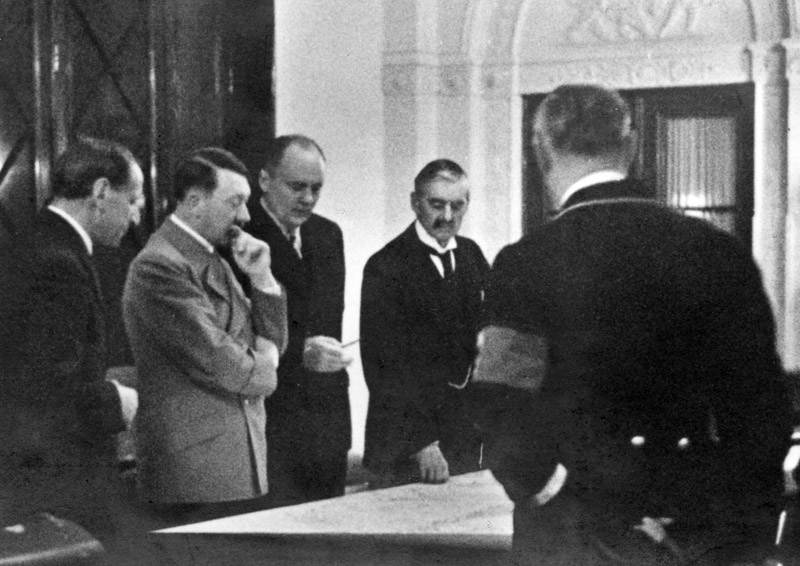
The British policy couldn’t have been another, since it proclaimed twice in 1919 and 1932 the “Ten Year Rule” – that there would be no war between the Great Powers in 10 year-time-and effectively cut on expenditures for the land Army. Thus, in 1939, London had only two divisions to send to the Continent, in order to fight the Wehrmacht which was preparing for war since 1932. The Dominions’ reluctance to go to war, the American pressure for peace in Europe, Chamberlain’s own convictions on how Germany should be dealt with and the lack of real and credible military deterrence brought the appeasement policy which failed completely. It did so also because Hitler believed the UK would not enter the war and would leave them a free hand in Eastern Europe against which Berlin would guarantee the British Empire.
Last but not least, the Nazi ideology’s inevitable war pressured Hitler to see that he was encircled and if he hesitated, a war would break out and Berlin would not be able to change its fortunes. Yet, this supposed encirclement was nothing but the slow but sure process to the creation of the war-time alliance between the USA and the UK and ultimately the USSR, which was prompted by German action. Therefore, Hitler felt encircled by his own actions in the realm of foreign policy which prompted the other powers to steadily create an alliance against Berlin.
Also, the American President Franklin Delano Roosevelt watched very worriedly the Berlin – Tokyo connection and its implications on the world system and ultimately decided that the Reich had to be effectively eliminated, since it alone had the power to bring the world into the totalitarian embrace. Roosevelt discovered sooner than the British that the Nazis were extremists and that negotiating with such a danger was absolutely pointless. FDR declared that “the experience of the past twoyears has proven beyonddoubt that no nation can appease Nazis. No man can tame a tiger intoa kitten by stroking it. There can be no appeasement with ruthlessness.There can be no reasoning with an incendiary bomb. We know now that anation can have peace with the Nazis only at the price of total surrender.”[1]
Also, Hitler’s own psychology would come into play at this point:he believed himself to be the providential leader, the only one who was able and had the courage to take such important decisions regarding Germany’s future. He feared old age and death and therefore, assumed that he would not live too long after his 50thbirthday on April 20th, 1939 and thus, he believe that should a war come, it should come sooner than later, since he was still alive and could offer his providential leadership skills to the German people. Yet, Göring asked Hitler in 1937 why Germany should take such a high risk of waging a total war and his answer was simply about his own person that ”all my life I’ve been going for broke”.
All in all, it seems obvious that the war started in Hitler’s mind long before the fatidic year of 1939. Yet, it was not a traditional war, but one which would prove Germany’s otherness quality and its right to rule the world, because of its superiority in race, power, arms, military prowess and economic status. As Allan Bullock mentioned, in the 1930s, Hitler only changed the level of the risks he was able to undertake, in order to make its Reich what he considered a real Weltmacht and him the absolute ruler. However, the war he waged since September 1st, 1939 was not the one he had envisaged:Germany planned for several short wars with pauses in between which would enable Berlin to regain its strength. Turning against the USSR while still trying to overrun Britain was maybe not the best option for Germany and also, the declaration of war against the US. Total war might not have been on Hitler’s mind, yet his thinking was erroneous as well:that he could make his enemies enter the war at the time he found it convenient.
But, in the end, maybe his greatest mistake was that he could not believe the UK would align itself with France, the USSR and also, that the US would not be neutral and isolated. Although the Nazi elite perceived accurately that at some point Washington might bring its enormous resources into play against Berlin, they thought that it would happen later than sooner which was not the case. Ever since the beginning and even before the war, the Allies received economic aid from the US. However, there was another fatal error in Berlin’s war planning:the Allies together disposed of seemingly endless resources compared to the Reich’s which were harder to mobilise than the Germans’, yet it was this balance in favour of the West which brought its final victory.
In the end, I may not have managed to get into every detail or be very specific about it, yet I think this article offers some kind of explanation to how the war began and what caused it. Also, I think what we have to remember is that wars, conflicts and so on firstly appear and take shape in people’s (read leaders) minds and only afterwards are they ”implemented”.
[1]Steven Casey, Cautious Crusade:Franklin D. Roosevelt, American Public Opinion and the War Against Nazi Germany, Oxford University Press, New York, USA, 2001, p. 38

